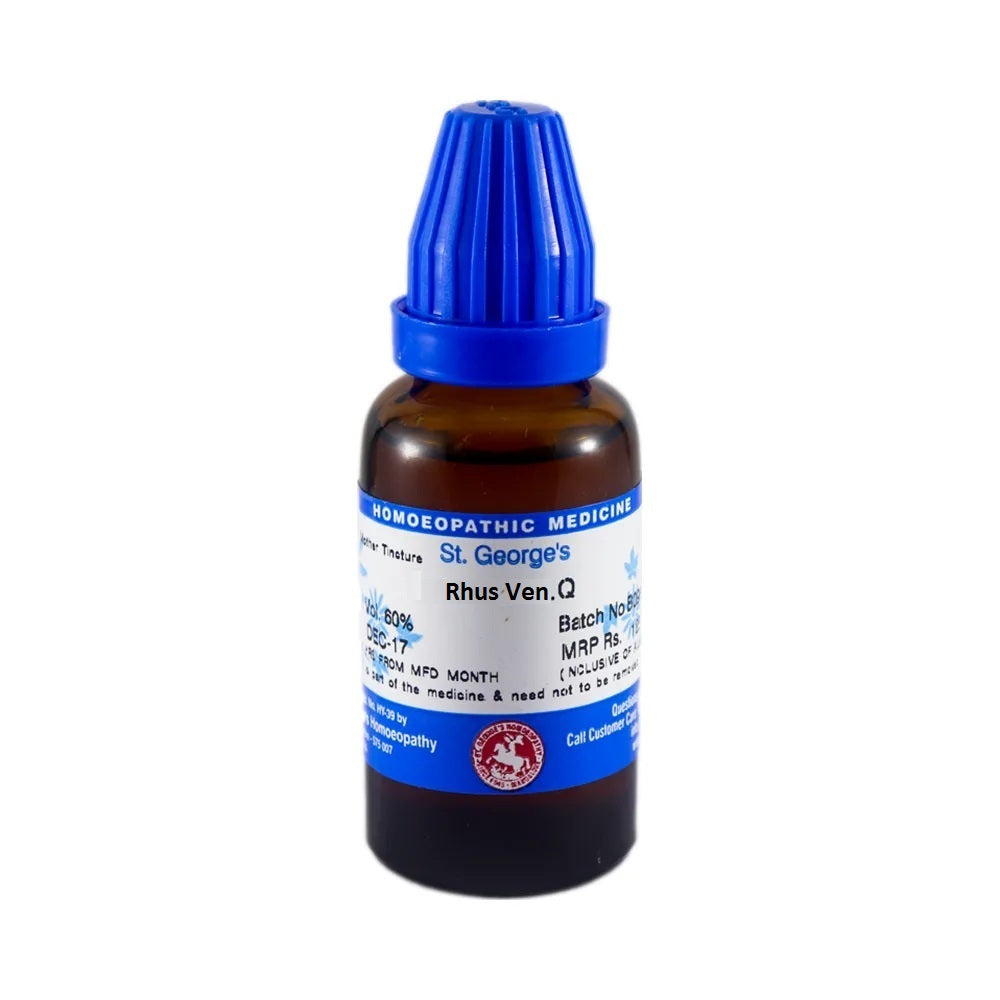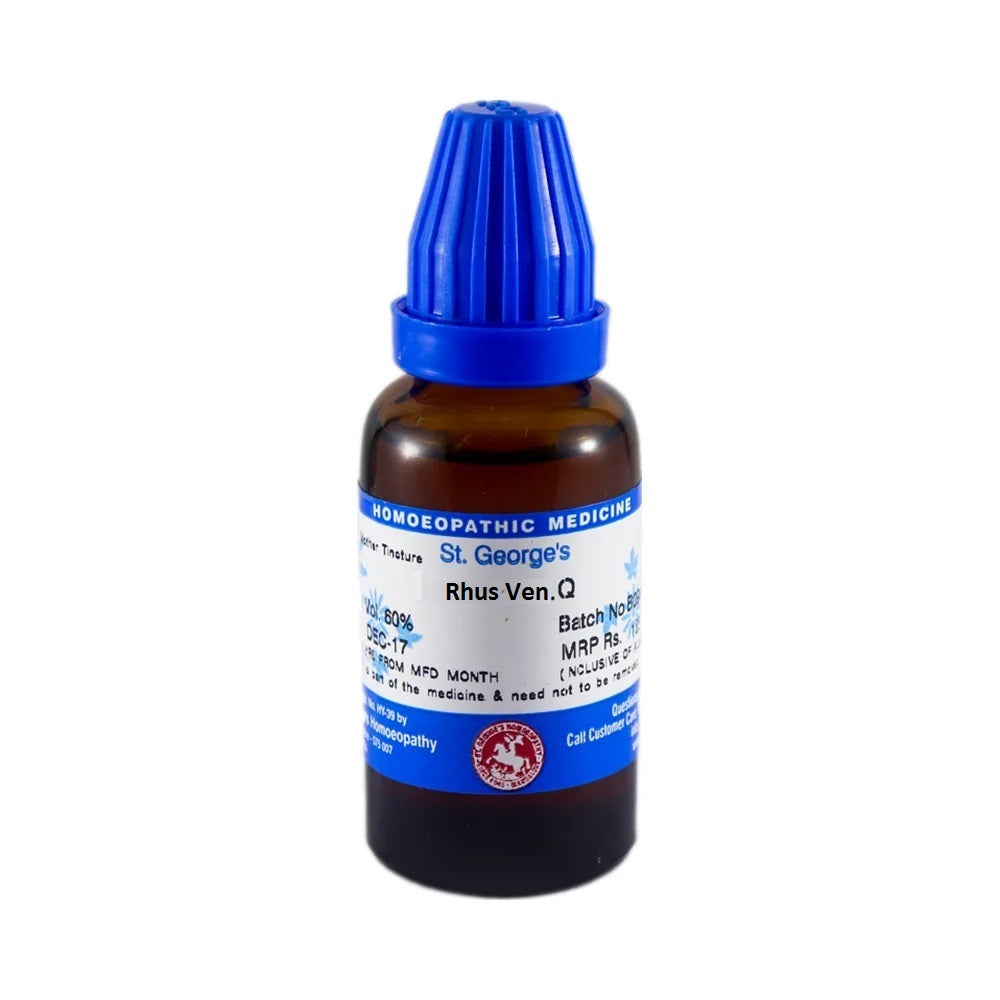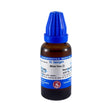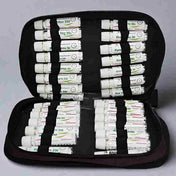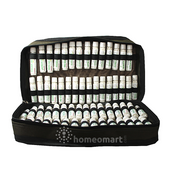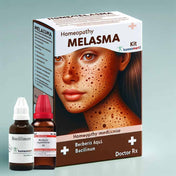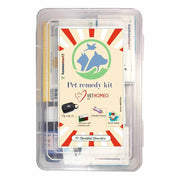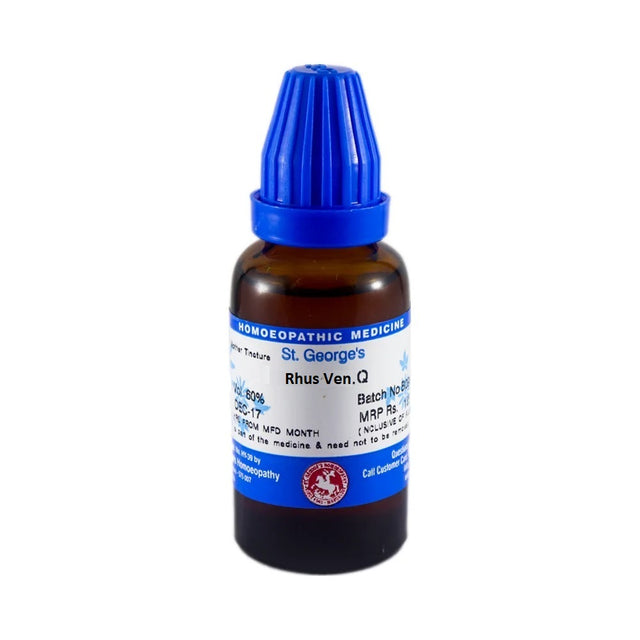Rhus Venenata Tincture – Homeopathic Remedy for Skin Eruptions & Inflammation
Rhus Venenata Tincture – Homeopathic Remedy for Skin Eruptions & Inflammation - 30ml is backordered and will ship as soon as it is back in stock.
Couldn't load pickup availability
Description
Description
About Rhus Venenata Homeopathic Mother Tincture Q, 1X
Rhus Venenata, commonly known as Poison Elder, is a deep-acting homeopathic remedy prepared from the plant Rhus vernix, belonging to the Anacardiaceae family. Although it shares certain characteristics with Rhus Toxicodendron, Rhus Venenata is a distinct remedy with its own marked sphere of action, particularly on the skin, nerves, and mucous membranes.
Source
Rhus Venenata is prepared from the fresh leaves of the Poison Elder plant, collected before flowering, ensuring optimal medicinal activity.
Also Known As
-
Poison Elder
-
Rhus Vernix
Clinical Indications & Health Benefits
Rhus Venenata is primarily indicated in conditions involving intense inflammation, burning, and irritation, especially of the skin. Key uses include:
✔ Skin Disorders
-
Eczema, vesicular eruptions, and rashes
-
Severe itching and burning sensations
-
Erysipelas with dark red inflammation
-
Erythema nodosum with nightly itching and deep bone pains
-
Skin irritation relieved by hot applications
✔ Rheumatic & Musculoskeletal Complaints
-
Rheumatic pains aggravated by cold, damp weather
-
Improvement with motion
-
Paralytic drawing pains, especially in the right arm, wrist, and fingers
✔ Eye Conditions
-
Conjunctivitis
-
Swelling and inflammatory eye conditions
-
Eyes nearly closed due to marked swelling
✔ Respiratory Complaints
-
Certain types of cough and bronchial irritation when associated with systemic inflammation
Rhus Venenata – Materia Medica Highlights
In homeopathic materia medica, Rhus Venenata is noted for violent skin inflammation and profound nervous involvement.
Mind
-
Deep melancholy
-
Gloomy thoughts
-
Indifference to life, lack of desire to live
Head & Face
-
Heavy frontal headache, worse on walking or stooping
-
Face swollen, nose red and shiny
-
Vesicular inflammation of the ears
Tongue
-
Red tip of tongue
-
Fissure in the middle
-
Vesicles on the underside
Abdomen & Stool
-
Profuse, watery, white stools, typically around 4 a.m.
-
Colicky pains before stool
-
Stool expelled forcefully
-
Pain in hypogastrium preceding each bowel movement
Extremities
-
Paralytic drawing pains in the right arm
-
Pain extending to wrist and fingers
Skin
-
Violent itching, relieved by hot water
-
Vesicles and inflamed eruptions
-
Dark red discoloration of affected areas
Relationships
-
Antidote: Clematis
-
Closely related to Rhus diversiloba (California Poison Oak)
-
Antidotes Radium and follows it well
-
Compare with: Anacardium
Dosage
-
Commonly prescribed in the 6th to 30th potency, as advised by a qualified homeopathic practitioner
Safety & Usage Guidance
Homeopathic remedies are generally safe when used correctly. However, Rhus Venenata is a powerful remedy, and improper use may temporarily aggravate symptoms, especially skin conditions. It should be used only under professional guidance.
As with all homeopathic treatments, remedy selection is based on individualization, considering the complete symptom picture and constitution of the person.
➡️ Always consult a qualified healthcare or homeopathic professional before starting this remedy.

